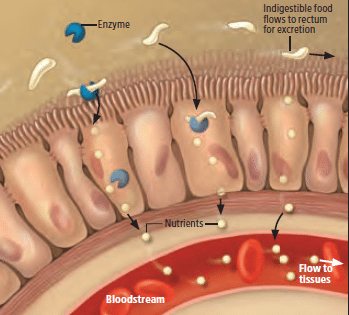Celiac diseas e is caused by sensitivity to gluten, the protein contained in many grains such as wheat, barley and rye. Celiac disease affects the small bowel, making itimpossible for you to absorb nutrients from food. It is likely a genetic disease and cannot be cured; however, it can be managed by removing gluten from your diet to relieve the symptoms and reverse damage to the small bowel.
e is caused by sensitivity to gluten, the protein contained in many grains such as wheat, barley and rye. Celiac disease affects the small bowel, making itimpossible for you to absorb nutrients from food. It is likely a genetic disease and cannot be cured; however, it can be managed by removing gluten from your diet to relieve the symptoms and reverse damage to the small bowel.
Symptoms of Celiac Disease
- Diarrhea, constipation or both
- Abdominal pain and cramping
- Abdominal swelling or bloating
- Weight loss
- Bone or joint pain
- Tiredness and loss of energy
- Mood changes, irritability and depression Canker sores
- Skin rash
- Tooth enamel problems
Celiac disease must be diagnosed by your doctor. Tests to confirm the disease include blood screenings, upper endoscopy with biopsy, and genetic analysis.
Diet for Celiac Disease
If you are diagnosed with Celiac disease, you must follow a strict, gluten-‐free diet daily, even if you don’t have symptoms. Failure to do so can permanently damage the small bowel and lead to serious health problems, including bone disease, cancer of the small bowel and various nervous system disorders. Gluten is found in wheat, barley and rye. The most common foods with gluten are those made with wheat flour, including bread, pasta, cake and other baked goods, and cereal. Gluten is also found in soy sauce, beer, gravy, salad dressings and most packaged goods. It is even found in some medications and cosmetics. Read the labels on all products to make sure there is no hidden gluten. You will also find a growing shelf of gluten-free products on the market today.
Follow up care is important
It is important to meet with your doctor at least once a year to evaluate your health and to have routine blood tests to make sure your condition is under control. Call us today at (630) 527-6450 or Request an Appointment online.
Helpful Links




